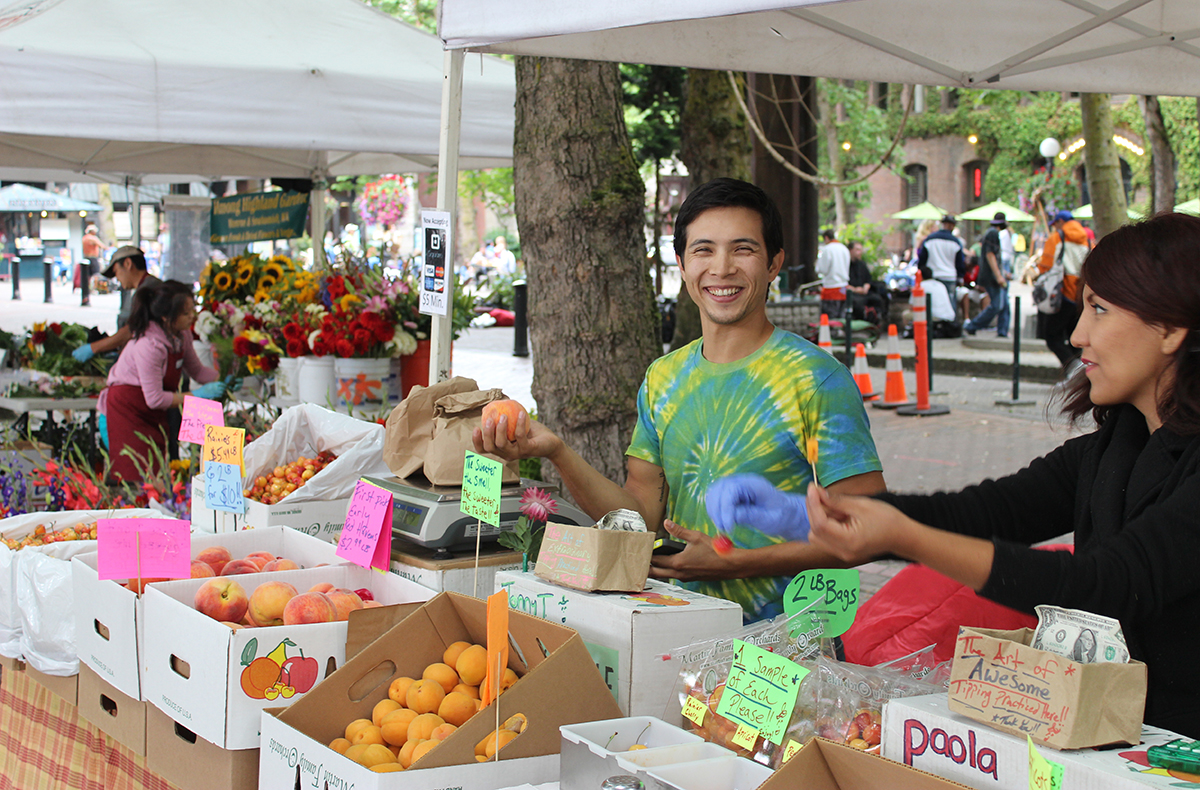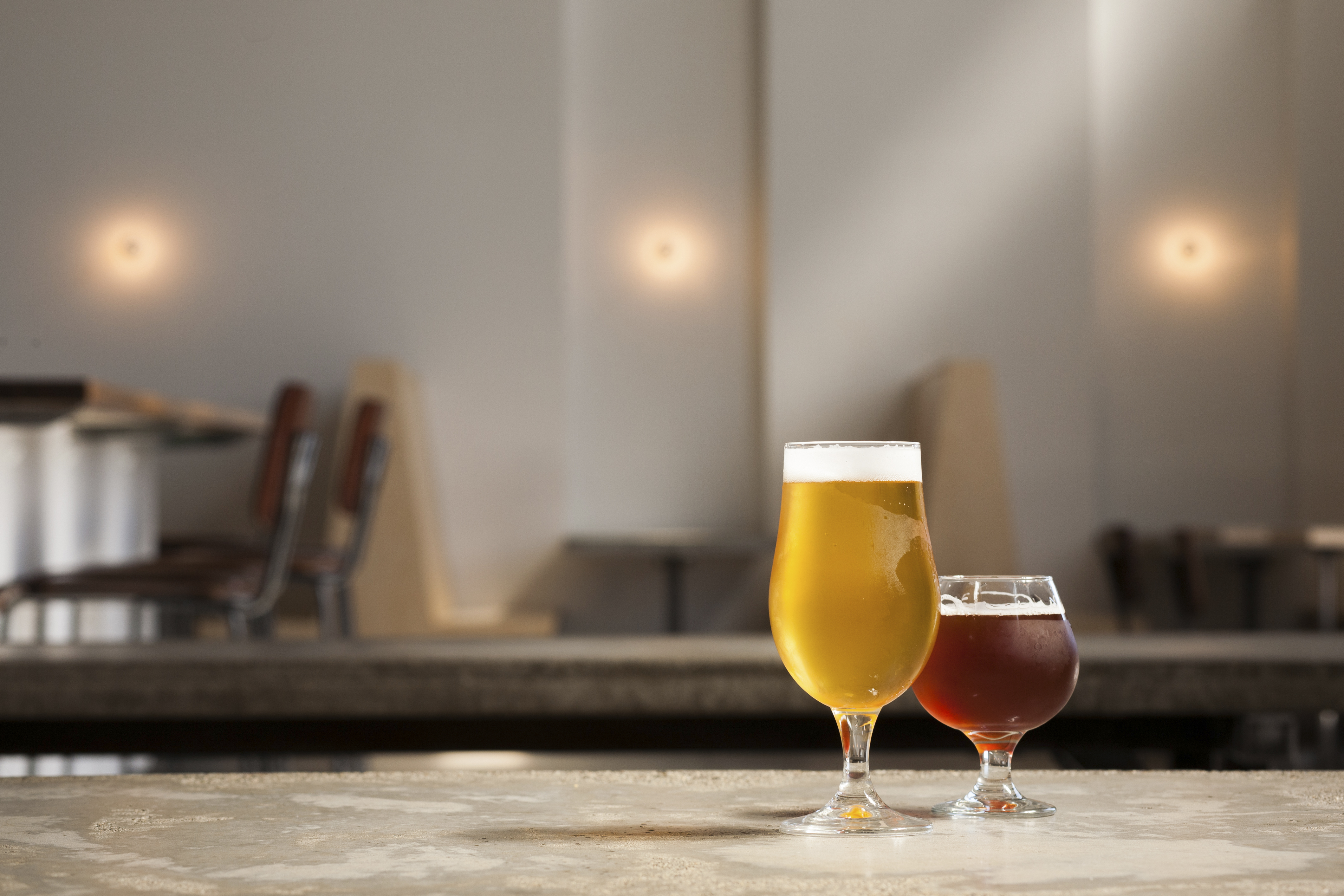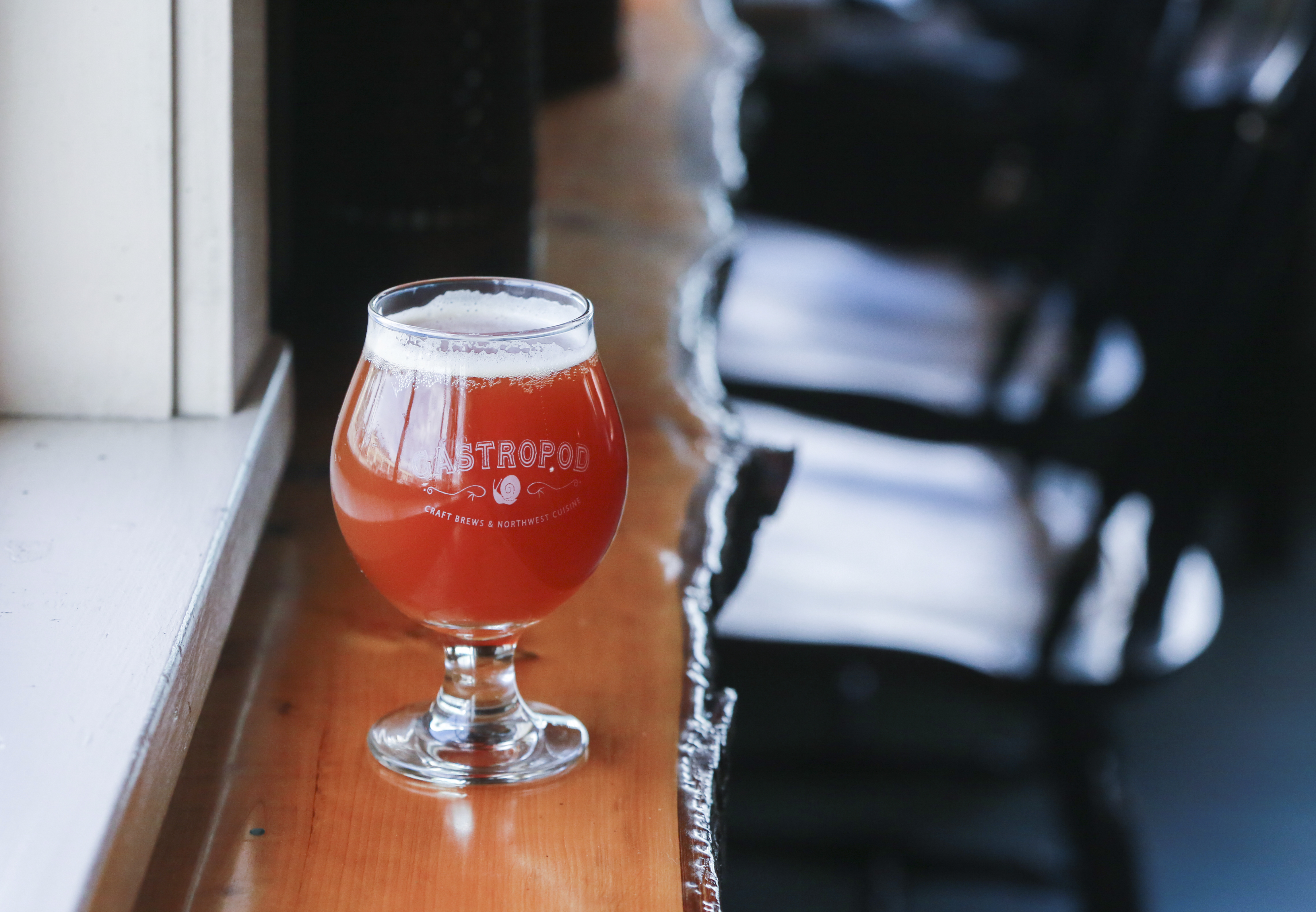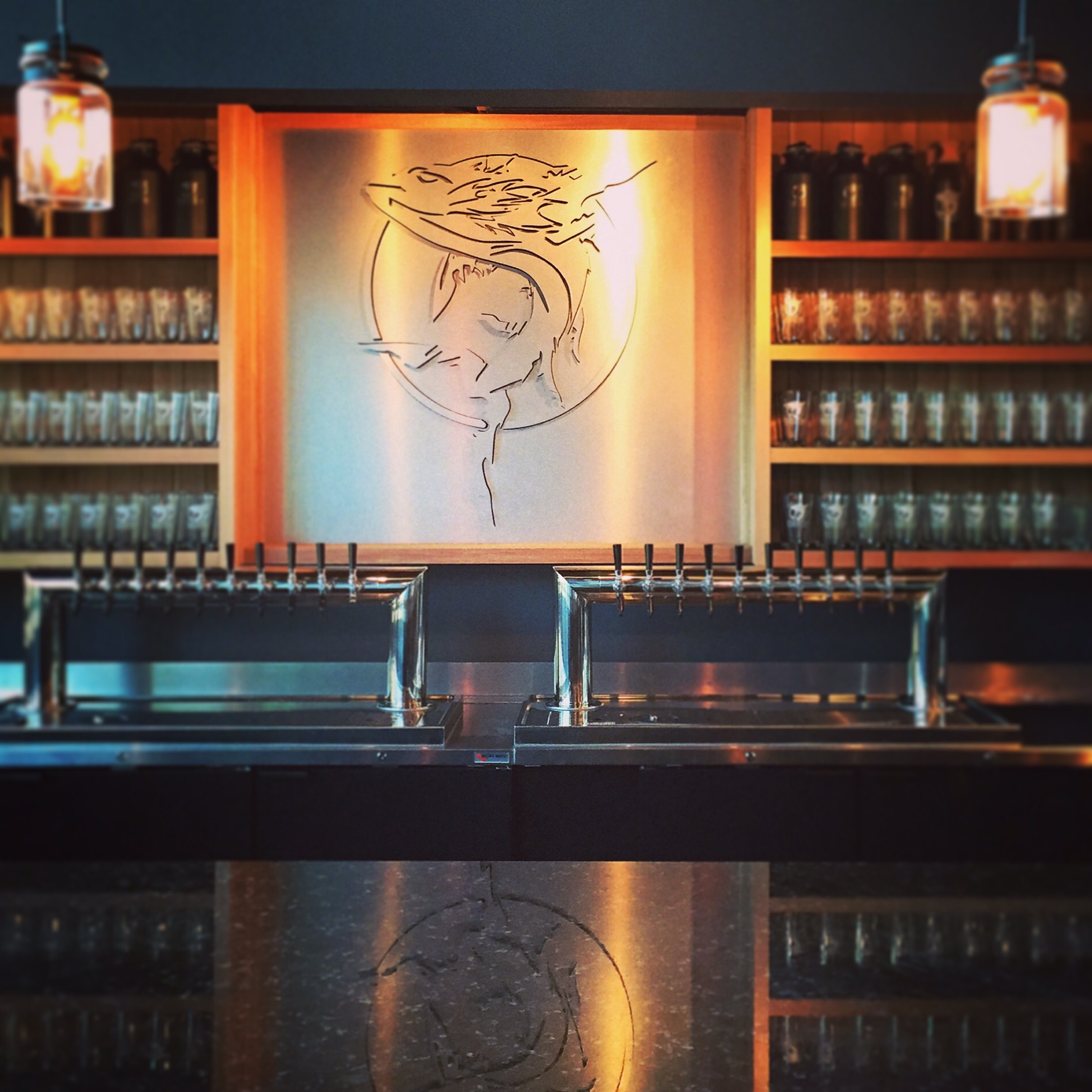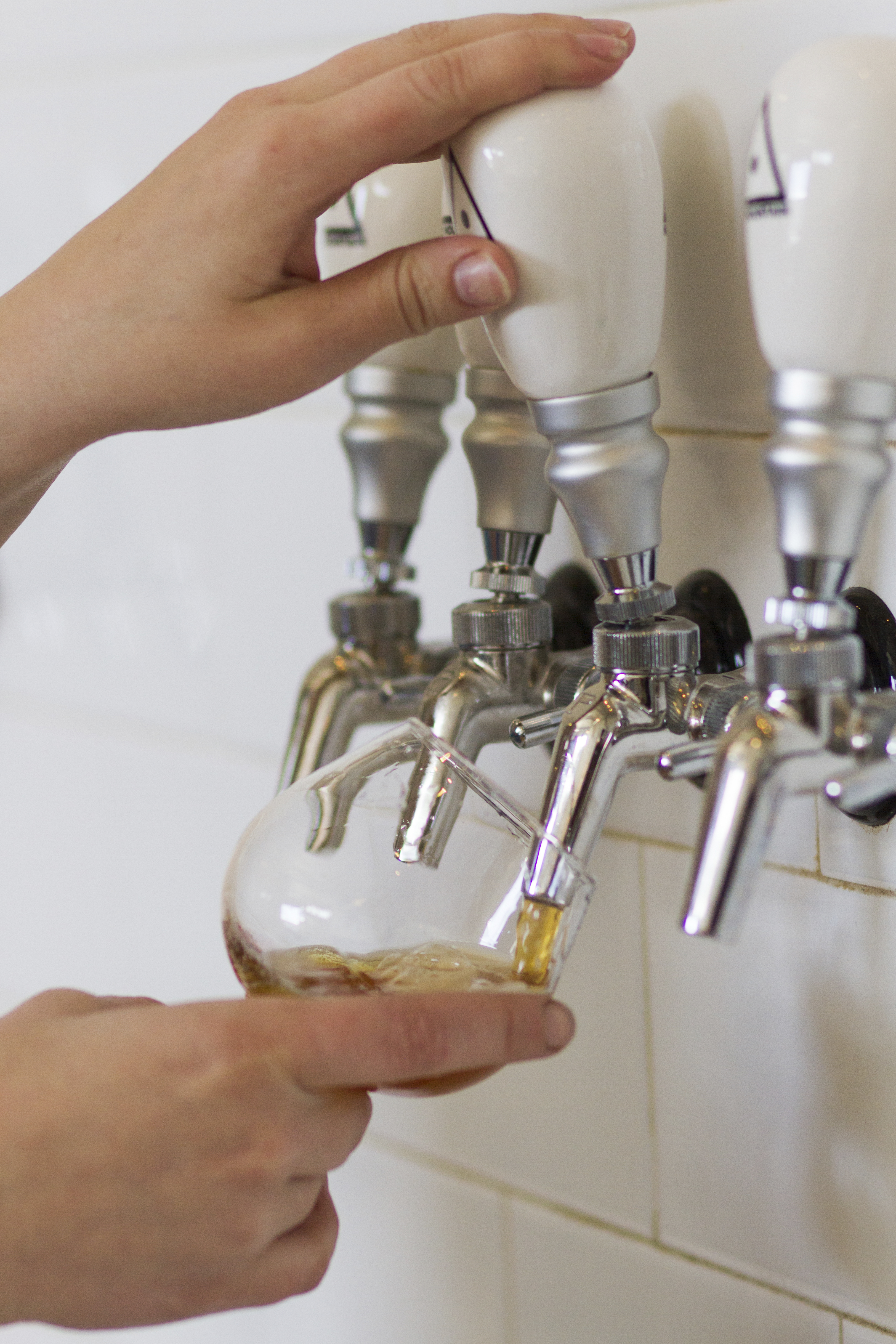The latest in a slew of openings in Pioneer Square isn’t a fancy cocktail joint or a handmade-pasta restaurant jammed with lunchtime patrons. It’s not a brick-and-mortar spot at all, but a group of white tents sheltering piles of produce, jars of pickles and honey, and fresh-baked bagels—even ice-cream bars.
The Pioneer Square Pike Place Express Market in Occidental Park is the latest food-focused event in the embattled historic neighborhood’s larger revival. It’s part of a program to bring smaller farmers markets—extensions of Pike Place Market—to downtown neighborhoods.
“Several years ago we recognized there was a demand for access to the farmers-market atmosphere and the great locally grown products that our farmers offer among people who want to shop at the market, but can’t really get down here on their lunch hour,” says Kelly Lindsay, director of programs and marketing for the Pike Place Market Preservation & Development Authority.
Pioneer Square has long had a rough reputation, undergoing booms and busts since the Gold Rush days. The most recent downturn centered around the recession and the loss of neighborhood retail anchor Elliott Bay Book Co. When it left for Capitol Hill in 2009 (owner Peter Aaron cited “the attractiveness and safety and vibrancy of the location” in a Seattle Times article as among the many reasons for moving), it seemed like a death knell for Pioneer Square.
But the move energized a burgeoning renewal effort that began with former Seattle Mayor Greg Nickels and has continued with Mayor Mike McGinn. Under Nickels’ direction, Pioneer Square stakeholders had already held two meetings by the time Aaron announced he was leaving. And the revitalization—not so surprising given Seattle’s foodie proclivity—is being led by food and drink.
Pioneer Square’s food scene, and its rebirth, gathered serious momentum when Mike Easton relocated Il Corvo to the neighborhood in January and Matt Dillon opened Bar Sajor in February. “Now we have two named Seattle chefs who clearly are investing in this neighborhood, and people said, ‘What are they seeing that I haven’t figured out yet?’ And then people show up and they kind of get a sense of the energy, and the commitment is there on the part of the neighborhood to make this work plan so successful,” says Leslie Smith, executive director of the Alliance for Pioneer Square (APS), the nonprofit formed in 2010 to lead the revival.
Matt Dillon scouted the neighborhood for two years because, he says, “I’m an aesthetically driven person . . . I wanted to be in a neighborhood that had some antiquity to it.” In fact, he had considered opening his New American restaurant, Sitka & Spruce (now on Capitol Hill), in Pioneer Square, but “the neighborhood didn’t feel right at the time”—because, he says, the spaces that were available weren’t right and because financially he wasn’t ready for the commitment that being in Pioneer Square demands. The lack of residents in particular, as well as the scarcity of parking, doesn’t bode well for restaurants.
This isn’t lost on Smith. “The city has done a really good job of creating these little commercial cores in neighborhoods, but what those neighborhoods have that Pioneer Square does not is really robust residential bases that support that retail. So you can walk to your local bakery or walk to your local restaurants or something like that, and we still do not have those residential numbers. We have such an incredibly high proportion of people that live in the missions or the transitional housing, and those people do not have any disposable income,” Smith says, citing Columbia City, Ballard, and Fremont as counterexamples.
The development of Stadium Place (also referred to as the North Lot Development) just north of CenturyLink Field should help; up to 740 residential units and 50,000 square feet of retail are slated. With residential space of any kind nearby, restaurants will be compelled to stay open later to cater to locals who roam after work looking for food and drinks. And that creates a certain atmosphere.
Easton and Dillon have since been joined by Rain Shadow Meats, The Lodge Sports Grille, Tinello, and Gaba Sushi. Dillon is also opening The London Plane, a hybrid bakery, cafe, grocery, and wine shop, in a partnership with Katherine Anderson of Marigold and Mint. “We should be opening the first part in a few weeks,” Dillon says. It’s actually two spaces—the north and south corner of Occidental Mall, the brick plaza just south across South Main Street from Occidental Park. “It’s the same business, but we didn’t have to go through a ‘change of use’ rezoning on one side, so that will be a teaser, with flowers, wine, food. The second part will be the deli, bakery, prepared foods, and that will open in November.”
Though the revival is based around food and restaurants, Smith says that “food is just one of the strategies that have been going on in the neighborhood for the last three years.” Retail, residential space, and restaurants all work together to make a vibrant neighborhood, though Pioneer Square has until recently lacked some of the pieces of that puzzle.
Smith says that if you start with restaurants, retail will soon follow. “When you get in and start looking at retail and understanding how retail works, quality retail follows food, particularly in a food town. And this is a food town, we all know that.”
The APS has made a concerted effort to talk up Pioneer Square and fill some of the empty storefronts—in January, the neighborhood faced an 11 percent vacancy rate. Now that’s changing.
“We started a buzz. People started talking about Pioneer Square. And then the property owners reported back to us that a year before that, they had empty retail space that no one was calling on, and all of a sudden they were getting calls,” says Smith.
Other important work includes business recruitment, improvements for pedestrians, and a focus on public safety. APS is also making a big push to market the neighborhood, promoting it to tourists and locals and changing the story from one of negativity and decline to one of positive developments.
“We did not take it as a death knell,” says Smith. “We took it as a wake-up call: Put your big-girl boots on and let’s get some work done.”
The farmers market is just the latest sign of the Pioneer Square renaissance, breathing new life into the much-maligned Occidental Park. The market, after all, wouldn’t be there if its vendors couldn’t generate significant foot traffic and attract hungry patrons.
“We’ve gotten a really great response from the community,” says Pike Place’s Lindsay. “We are just really thrilled to be a part of all of the great energy that’s happening in Pioneer Square right now.”
nsprinkle@seattleweekly.com
